
| Steps Toward Starting an Office Recycling Program |
 |
 |
Why Have An Office Paper Recycling Program?
Midstates Recycling Services can help with setting up and running your recycling program. This booklet explains the process of establishing a sound, viable program. Included are guidelines, worksheets, samples of promotional materials, and descriptions of paper grades to collect --- all designed to make the planning and implementation of an office paper-recycling program as easy as possible. Download this guide in PDF format
1. Planning and Developing Your ProgramAs planning begins for an office paper recycling program, there are a few possibilities to consider: FIRST- call a Midstates Recycling Services Representative. Check with your building manager or janitorial staff to see if there are already any recycling programs in place in the building. If the answer is yes, compare notes with the program coordinator. Useful information may be gained that will help you plan your program. NEXT- Complete the waste audit form for an overview of your company's disposal needs. VISUAL SURVEYTo get an idea of the types of waste that your company is producing look through a random sample of waste receptacles. Take care to check different departments, as some will be more likely to use larger amounts of paper than others. List the most common types of paper found and determine quantity.
2. Organizing the Program's StaffTHE COORDINATORSolid organization is the key to a successful office program. This is especially true of a new program that will affect, even in a minor way, the work habits of employees. First of all, the paper-recycling program will need a key employee to serve as overall coordinator. The coordinator will serve as an executive director of the program and will establish the collection system, and educate employees on their part in the program. When choosing the coordinator, look for an enthusiastic person on your staff who is a good communicator. The coordinator should have strong organizational talents and enough experience in the company so that he/she will know his/her way around. Initially, experience or knowledge concerning recycling is not of any great importance. THE MONITORSAlso of vital importance for a successful program are monitors to assist the coordinator. The monitors will see to it that recycling bins are free of non-recyclable materials, will keep the coordinator advised of the status of the program in their sectors, and will serve to some degree as cheerleaders, enthusiastically encouraging employees to participate. There should be one monitor for every 25 to 50 employees. The Recycling Experts can provide guidance in the establishment of a program, its promotion, as well as training and assistance to the coordinators and monitors. While paper markets change considerably each year, it is essential to have reliable and consistent service.
3. Conducting the ProgramThe ultimate success of an office paper-recycling program will rest with employees. It is imperative that employees have a clear understanding of the program and have the necessary equipment to participate in the program. DESK-SIDE RECYCLING CONTAINERSMonitors will provide each employee with a desk-side recycling container to be used solely for collecting used office paper. This can be as simple as a copy paper ream box, plastic trashcan or other inexpensive receptacle that is distinctly labeled for recycling only. It is the responsibility of each employee to make certain that only those types of office papers being collected are placed in the desk-side container. CENTRAL RECYCLING CONTAINERSWhenever an employee's desk-side container is full, it should be emptied into the central recycling containers. These containers should be placed around the office where employees would normally pass by on the way to the stairs, copy machine, supply cabinet, etc. Containers should also be placed at copy machines and other areas where considerable amounts of paper may be generated. To prevent trash from being emptied into the central containers, they should be clearly labeled "FOR RECYCLING ONLY", or something similar. Attached to this booklet are guides that may be used to put on the containers to indicate what may and may not be recycled. Other tips to eliminate trash in the recycling containers include placing regular trash containers near the central recycling containers (making it easy for people to use the correct containers) and ensuring the trash and recycling containers differ in appearance. MAIN STORAGE BINSBins and or Gaylord boxes in a main storage area are the final destination where the office paper to be recycled will be stored while it awaits pickup. When selecting the area remember: • Is the area large enough? feet in size. • Does the area need to be locked? • Is the area free of fire hazards and do sprinklers protect it? Check for local fire department requirements. • Is it easily accessible to the central containers? • Will it be accessible for your staff, volunteers and recycling hauler to reach for removal? JANITORIAL SERVICESCommunicate details of the office paper-recycling program to the company's janitorial services. In one-way or another, the janitorial service will be involved with the program. Some of the ways to integrate janitorial services into the program include: • Have the janitors collect the paper from the central containers and transfer it nightly to the main storage bins. • Explain to the janitors that they are picking up the same amount of trash, but that it is simply divided into separate containers. Emphasize that they will not be doing the separation. • Have the recycling program added to the next janitorial contract. • Consider hiring a student on a part-time basis to handle removal. • Even if the janitors are not involved in the office paper-recycling program, make certain they are aware of the details so they do not mix regular trash with the paper. When deciding the best possible way to move office paper from the central collection containers to the storage bins, consider these points:• Is there in-house staff that could handle the consolidation duties? • Are there any part-time or temporary personnel who can consolidate the paper? • If the company has more than one shift, which would be the most appropriate to handle these duties? • Are the janitorial services in-house, contract or union? • How large is the janitorial staff that services the building?
4. PROMOTING THE PROGRAMIf the office paper-recycling program is to succeed, three points are important: • Employees must receive notification that the program will be initiated. • They must receive education on the specifics of the program • They must receive periodic follow-up publicity. NOTIFICATIONDistribute a memo to all employees or put an article in the company newsletter. Ideally this communication should be signed by the company's senior executive or have that individuals endorsement. In this communication explain the benefits of the program, the procedures that must be followed and where any revenue from the program will be applied. EDUCATION SESSIONSAll employees should attend a meeting where the details of the program are made clear. Perhaps the meeting could be part of a regular staff or safety meeting. Regardless, all employees should have written information as to the types of office paper that will be collected and materials that must be kept out of the program. New employees should have this information included in their "new employee orientation" packet or training. If possible, bring in a representative from the recycling organization that will be receiving the collected materials. He/she will be able to answer questions and provide information about the entire recycling process and the end uses for the waste paper collected from the program. FOLLOW-UP PUBLICITYMidstates Recycling Services will provide you with an environmental sheet posting your accomplishments. Even though an office paper-recycling program may have met with initial rave reviews, there may be a loss of enthusiasm and an increase of materials discarded if it does not get periodic publicity and recycling policy is not regularly published. In a company newsletter or other form of regular communication, consider letting employees know the quantity of materials they recycled, and the amount of energy and environmental savings realized due to the program. List the locations of any new recycling containers and the use of any revenue earned. Finally, make sure to congratulate specific employees and departments for jobs well done. SUMMARYAll successful office paper-recycling programs have particular elements in common: • Support from top management • Capable and enthusiastic program coordinator • Secure market for recyclable material • Simple and reliable collection system • Effective employee education and publicity program • Reliable source of recycling information
***Source of information:United States Environmental Protection Agency:The U.S. Environmental Protection Agency (EPA or sometimes USEPA) is an agency of the federal government of the United States charged with protecting human health and the environment, by writing and enforcing regulations based on laws passed by Congress. The EPA was proposed by President Richard Nixon and began operation on December 3, 1970, after Nixon submitted a reorganization plan to Congress and it was ratified by committee hearings in the House and Senate. The agency is led by its Administrator, who is appointed by the president and approved by Congress. The current administrator is Lisa P. Jackson. The EPA is not a Cabinet department, but the administrator is normally given cabinet rank.
|

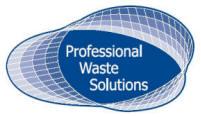
![]()
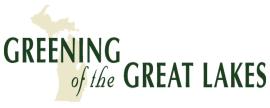
![]()
![]()

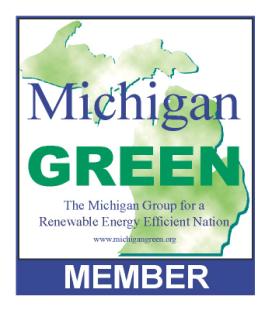
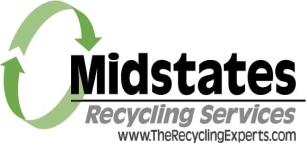
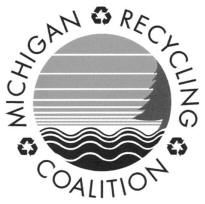

![]()
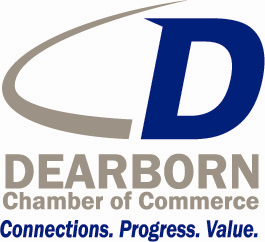
Ann Arbor, Allen Park, Auburn Hills, Belleville, Berkley, Bingham Farms, Birmingham, Bloomfield Hills, Brighton, Brownstown, Canton, Chesterfield, Center Line, Clarkston, Clawson, Clinton Township, Commerce, Commerce Township, Dawsonville, Dearborn, Dearborn Heights, Detroit, Dundee, Eastpointe, Ecorse, Farmington, Farmington Hills, Ferndale, Flat Rock, Franklin, Fraser, Garden City, Grosse Ile, Grosse Pointe, Hamtramck, Harper Woods, Hazelpark, Highland, Huntington Woods, Inkster, Keego Harbor, Lake Orion, Lincoln Park, Livonia, Madison Heights, Melvindale, Milan, Milford, New Boston, Northville, Novi, Orion, Oak Park, Orchard Lake, Pleasant Ridge, Plymouth, Pontiac, Rawsonville, Redford, River Rouge, River View, Rochester, Rochester Hills, Romulus, Roseville, Royal Oak, Saint Clair Shores, Saline, Shelby Township, Southfield, Southgate, Sterling Heights, Sylvan Lake, Taylor, Trenton, Troy, Walled Lake, Warren, Waterford, Wayne, West Bloomfield, Westland, Wixom, Woodhaven, Ypsilanti,